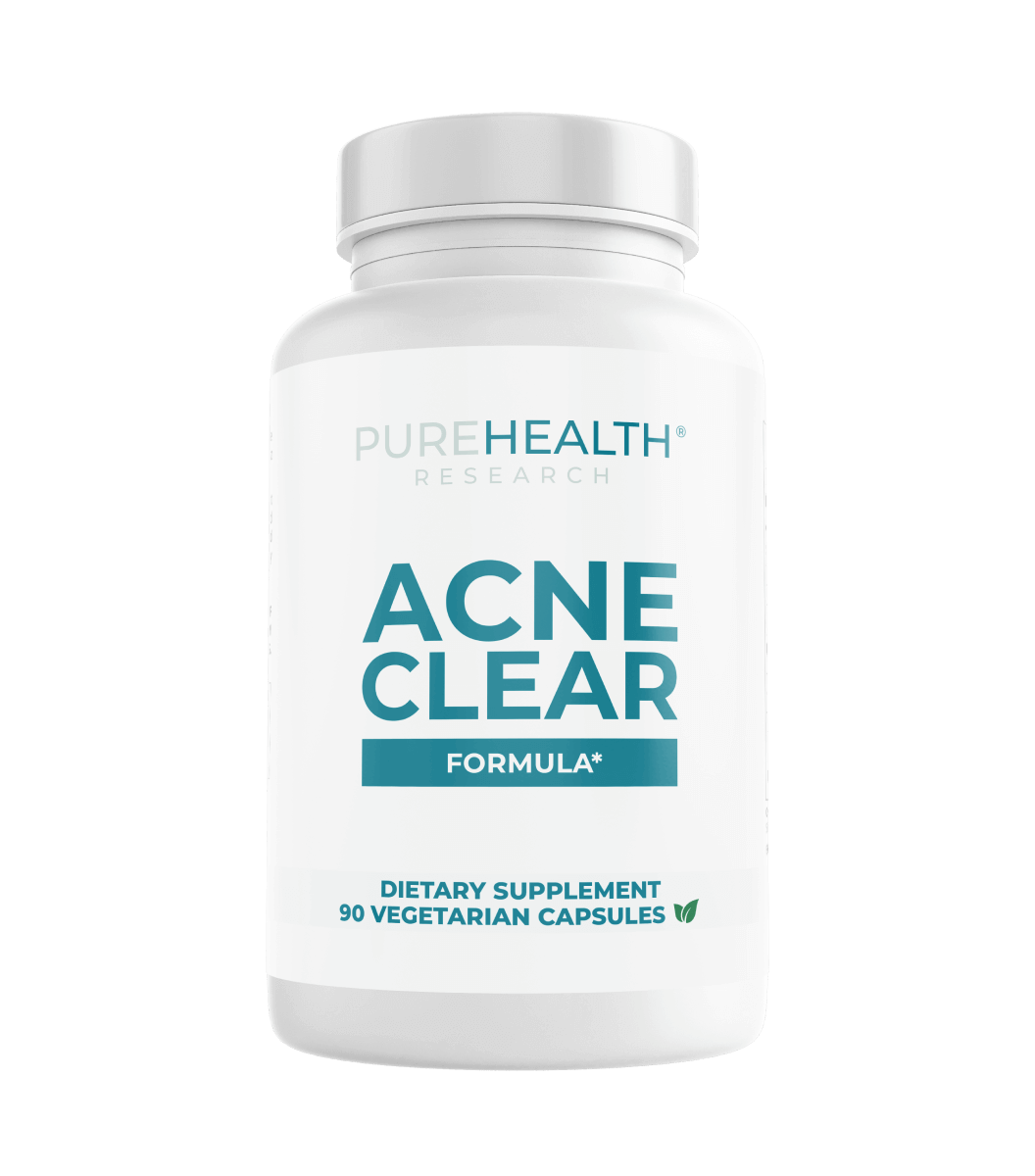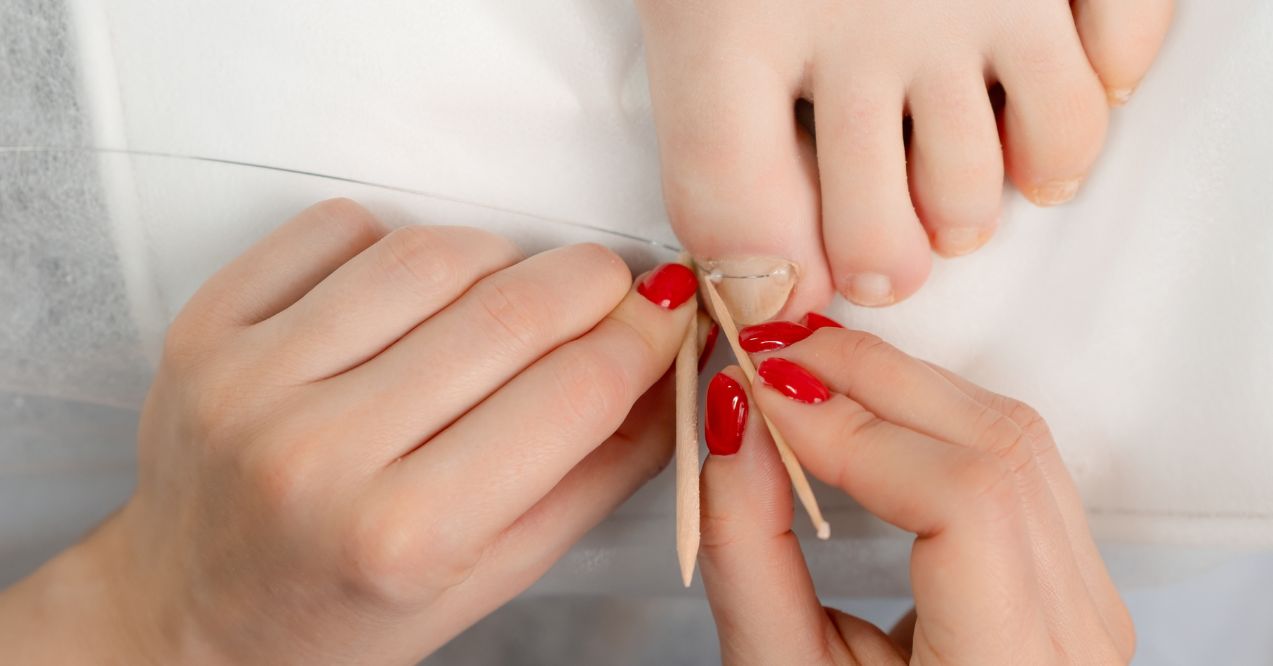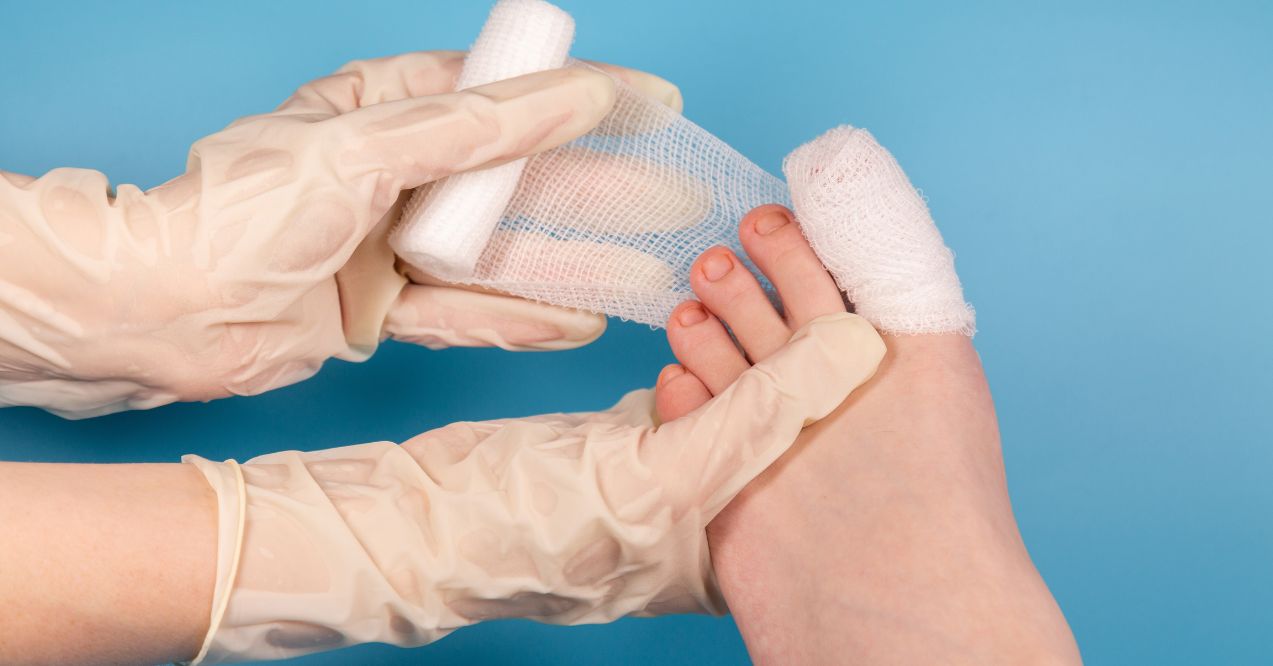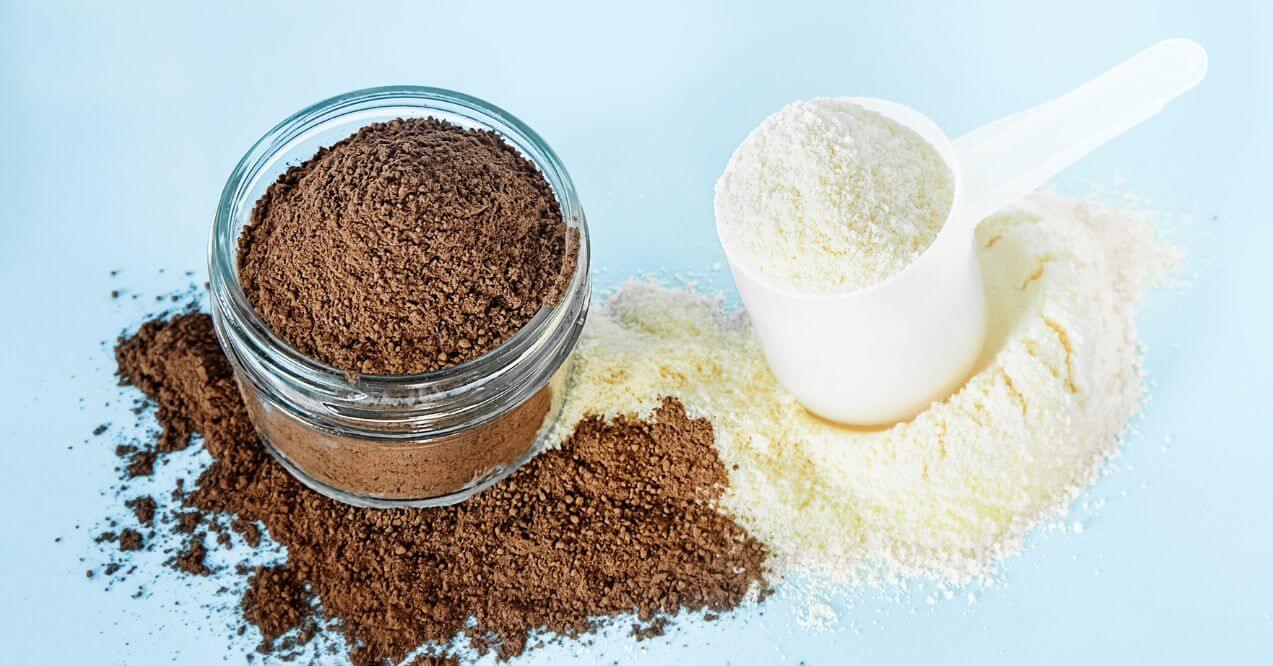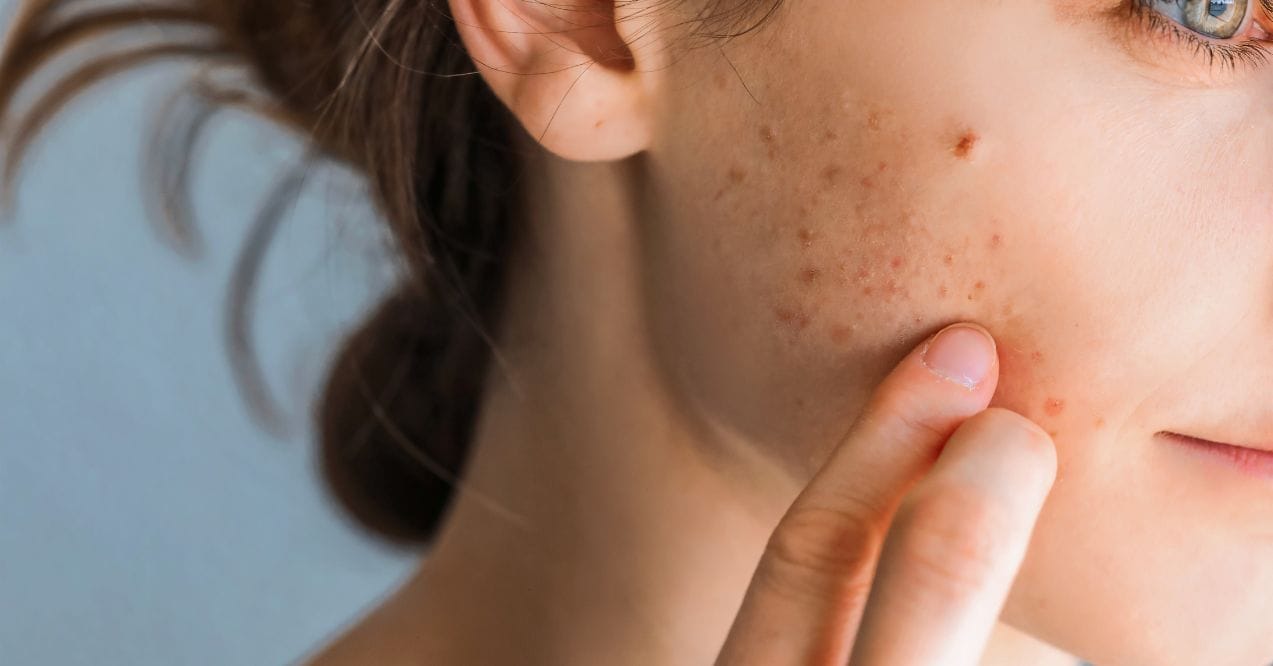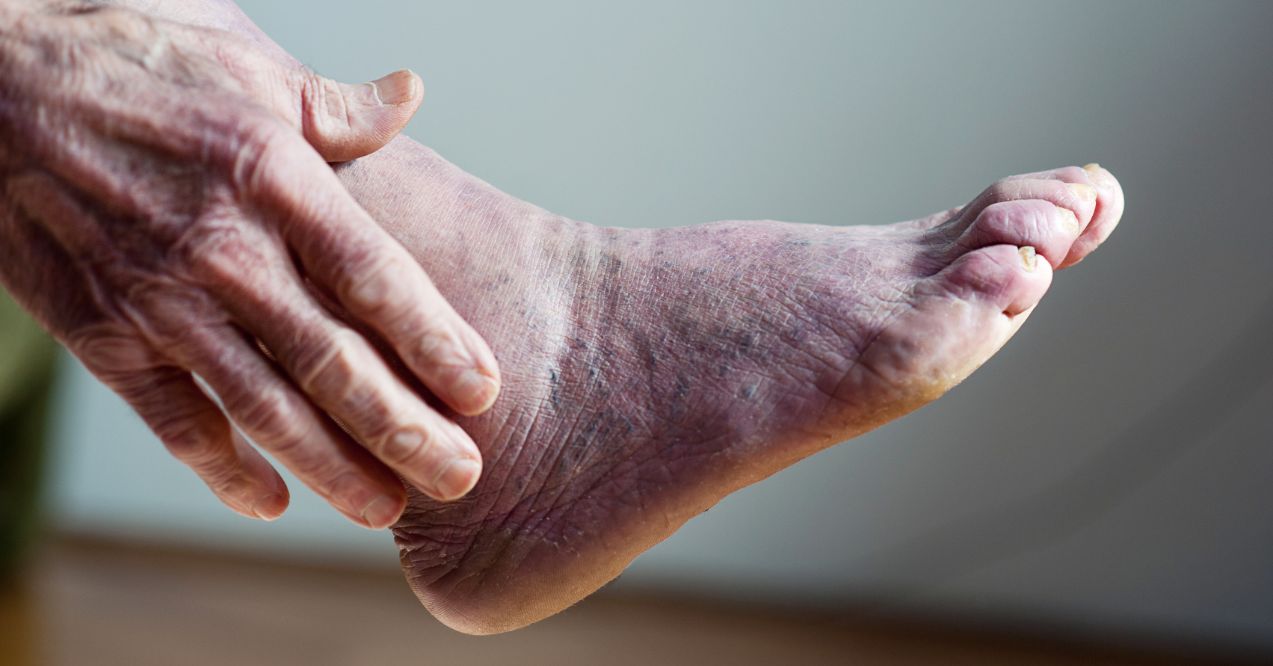Does Ashwagandha Cause Acne?
Unravel the truth: does ashwagandha cause acne? Find out how this herb affects your skin health in our latest article!
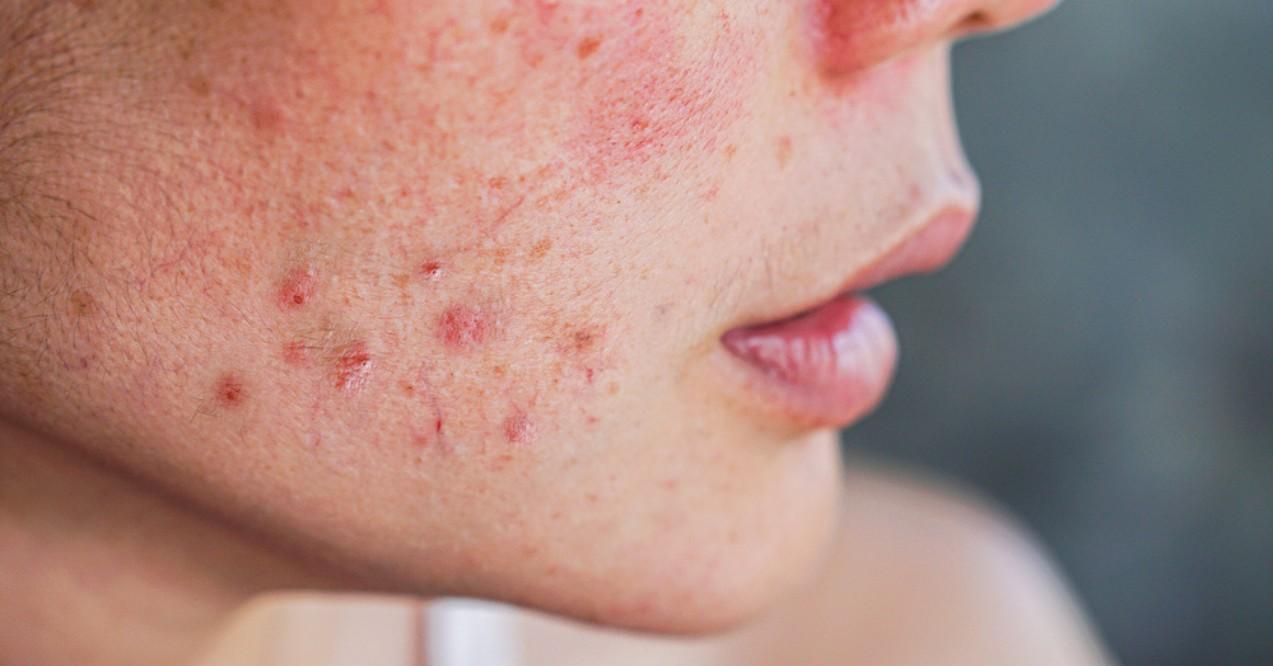

In the rise of holistic health trends, many wonder, does ashwagandha cause acne? This Ayurvedic herb is praised for reducing stress, but concerns exist about its effects on skin health. Acne stems from factors like oil production, inflammation, and clogged pores, making it important to explore any potential link.
While ashwagandha offers various benefits, its impact on acne varies by individual, influenced by dosage, genetics, and overall health. This article examines scientific findings to determine whether ashwagandha contributes to breakouts or supports clearer skin.
Does Ashwagandha Cause Acne? Lets Find Out!
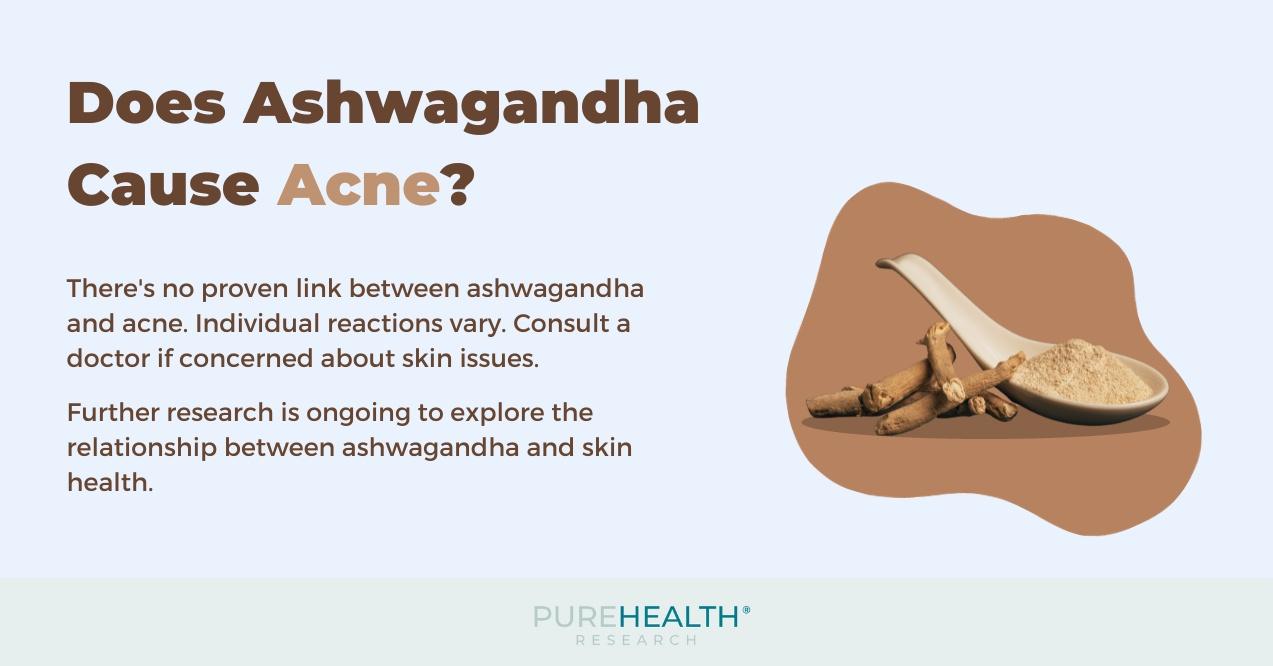
Current scientific data have yet to confirm a direct connection between ashwagandha intake and acne development. It’s crucial to recognize that individuals may respond differently to supplements. As studies continue to probe the relationship between ashwagandha and skin health, those considering its use should consult with a medical expert, especially if they hold concerns about potential skin reactions.
How Ashwagandha Interacts with Acne: What We Know
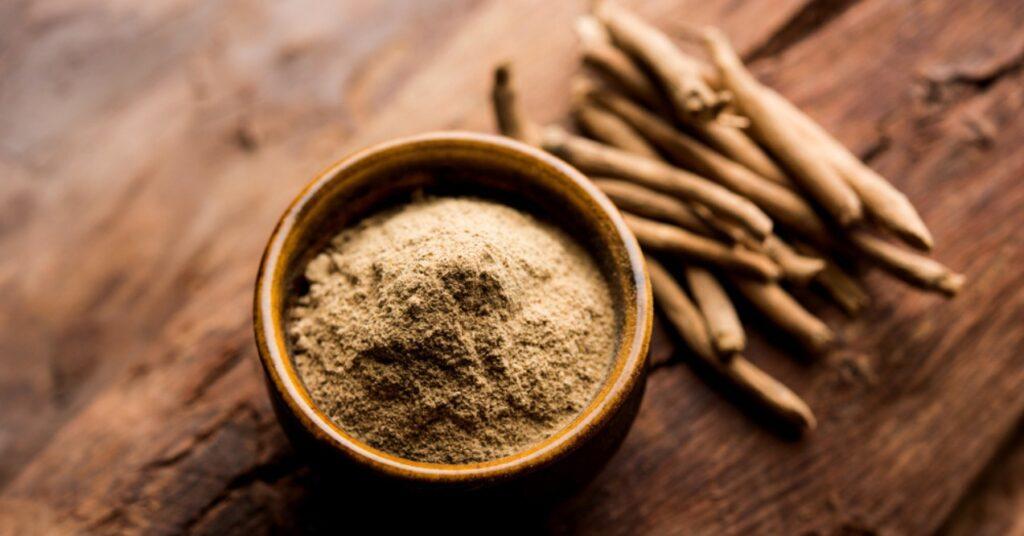
Acne is a multifaceted skin condition that can manifest in various ways, largely influenced by genetics, environment, and individual factors. As the holistic wellness movement grows, many are asking about ashwagandha’s role in acne development or alleviation. Here’s what current research suggests.
Hormonal Acne
Hormonal acne, marked by its connection to hormonal imbalances, can lead to increased oil production and inflammation. While ashwagandha is known for its adaptogenic properties—helping the body manage stress—it’s unclear how or if it directly impacts hormonal acne. Some anecdotal accounts suggest a link between ashwagandha intake and hormonal acne flare-ups, but we lack robust scientific evidence to draw definitive conclusions.
Inflammatory Acne
Inflammatory acne is primarily a response to bacteria, excess sebum, and inflammation. While ashwagandha has been traditionally believed to possess anti-inflammatory qualities, this doesn’t directly translate to it being a remedy for inflammatory acne. Current research has not established a definitive connection between ashwagandha consumption and reduced inflammatory acne.
Cystic Acne
Cystic acne, known for its tender, deep lesions, arises from a combination of genetics, hormones, and inflammation. Some believe that ashwagandha might exacerbate cystic acne due to its potential effects on male hormone T- levels. However, this link is speculative, and more research is needed to understand the relationship fully.
Non-inflammatory Acne or Comedonal Acne
This type, which includes conditions like whiteheads and blackheads, emerges when pores clog and sebum accumulates. While many ask, “does ashwagandha cause acne?” any claim suggesting its direct role in non-inflammatory acne is largely anecdotal. Rigorous scientific studies are needed to provide clarity.
Acne’s complexity arises from genetics, environment, and personal factors. With the increasing interest in holistic wellness, ashwagandha’s potential influence on acne is under scrutiny.
Presently, while ashwagandha is valued for stress management, its direct effect on various acne types remains uncertain. Current understanding is a mix of traditional beliefs, anecdotal accounts, and limited scientific evidence, highlighting the need for more research.
6 Ashwagandha’s Benefits for Holistic Wellness
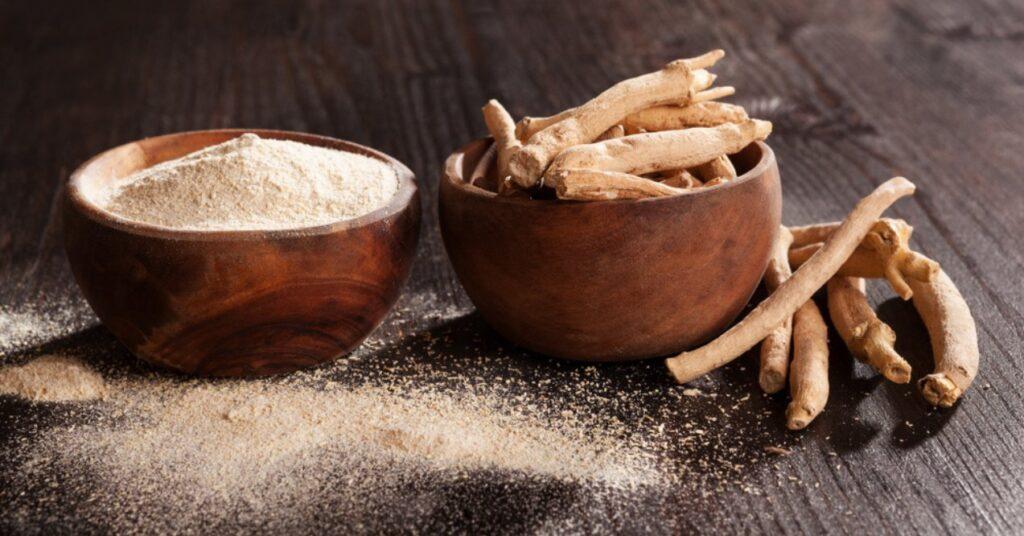
Ashwagandha, a well-regarded herb, offers a range of benefits that potentially support both mind and body wellness. Here’s a deep dive into its notable contributions:
1. Stress Management
In today’s fast-moving world, managing stress is crucial, not just for mental well-being but also for skin health. Ashwagandha, renowned for its adaptogenic properties, helps balance cortisol levels—our primary stress hormone. While it’s not a direct solution for conditions like acne, incorporating ashwagandha and magnesium can address a key trigger: stress. Using these supplements is a strategic step towards holistic wellness and better skin health.
2. Mental Health Challenges
Ashwagandha is rich in bioactive components, particularly alkaloids and withanolides. These compounds are believed to strengthen the brain’s resistance to stress, regulate neurotransmitter levels, and support neuroplasticity — the brain’s capacity for adaptation. Given these properties, ashwagandha presents a compelling option for those seeking natural ways to manage feelings of distress and dark mood.
3. Improved Sleep
Ashwagandha has garnered attention for its potential to enhance sleep quality. Multiple studies have delved into its effects, revealing promising outcomes.
A 2021 study with 400 participants observed the impact of ashwagandha extract on sleep for both people with and without sleep problems. The results were noteworthy, particularly for those with sleep disorders:
- Quicker Sleep Onset: Participants fell asleep more rapidly.
- Enhanced Sleep Efficiency: A greater portion of the night was spent in restful sleep.
- Extended Total Sleep Time: Sleep duration was effectively lengthened.
- Fewer Disturbances: There was a decrease in periods of wakefulness after initially drifting off to sleep.
- Morning Alertness: Upon waking, participants felt more mentally alert.
In light of these findings, ashwagandha presents itself as a viable natural option for those aiming to enhance their sleep quality and overall well-being.
4. Cognitive Enhancement
Ashwagandha is believed to positively influence neural pathways and cognition. Recent studies indicate its ability to augment sustained attention and boost short-term memory. Given these insights, ashwagandha emerges as a promising supplement for those pursuing natural methods to enhance cognitive function.
5. Support for Thyroid Function
Ashwagandha root extract exhibits promising potential in normalizing thyroid indices, especially for individuals with subclinical hypothyroidism. Here’re a few key findings after an 8-week treatment period described in this study:
- Ashwagandha was found to significantly improve serum TSH, T3 (triiodothyronine), and T4 (thyroxine) levels in comparison to the placebo.
- The normalization of these thyroid indices with ashwagandha treatment was significantly consistent throughout the 8-week duration.
- From the 50 initial participants, only four reported mild and short-lived adverse effects, with only one from the ashwagandha group and three from the placebo group.
This highlights ashwagandha as a potential natural solution for managing this thyroid condition. However, as with all therapies, individual responses can vary, and it’s important to consult with a healthcare professional before starting any new supplement regimen.
6. Immune System Boost
Ashwagandha, a well-known herb, has recently been studied for its potential to support our immune system. The research shows that ashwagandha can help increase certain important immune cells and markers in our body, which are vital for fighting off illnesses. This backs up its traditional use as a herb that not only strengthens our defenses against pathogenic agents but also helps rejuvenate our body and counter stress. In essence, ashwagandha might be a natural way to give our immune system a helping hand.
What Are the Biggest Side Effects of Ashwagandha?

We recognize that when it comes to personal health, you need clear and authoritative information. Ashwagandha, often praised for its numerous benefits, does come with its set of considerations. Let’s delve deep to understand the side effects, address common concerns, and guide you in making informed decisions about its usage.
Allergic Reactions
Allergic reactions to ashwagandha are rare, yet vital to be aware of. If you’ve ever shown sensitivity to the Solanaceae family of plants, think tomatoes or bell peppers, ashwagandha might be a concern. Symptoms could range from skin rashes and itching to severe responses like breathing challenges or, in exceptional cases, anaphylaxis—a condition needing immediate medical attention.
Considering ashwagandha? We recommend a preliminary patch test. And always remember: safety first. Should any unusual symptoms appear post-consumption, cease intake and consult a healthcare professional immediately.
Hormonal Changes
It’s essential to understand that while ashwagandha can influence hormonal balance, it might not be the right choice for everyone.
For individuals with hormone-sensitive conditions—such as breast or ovarian malignancies, or even thyroid-related issues—ashwagandha requires a cautious approach. These conditions often have specialized medical treatment protocols, and introducing an element that modulates hormone levels might be counterproductive.
Upset Stomach and Diarrhea
One thing to remember is that ashwagandha may cause issues for some individuals. While most people can handle ashwagandha without any problems, a few might experience discomfort in the stomach, bloating, or even diarrhea after taking this herb. Some also wonder, does ashwagandha cause acne? While there’s no clear evidence, its effects on hormones and digestion may influence skin health for certain individuals. These effects on the system could be due to ashwagandha’s impact on the gut microbiome or its ability to stimulate digestion.
To minimize the chances of experiencing discomfort, you might want to start with a lower dose of ashwagandha and gradually increase it over time. This approach allows your body to adjust and helps you gauge your tolerance level. Additionally, taking ashwagandha with food can sometimes alleviate any stomach issues.
Who Should Avoid Ashwagandha?

Ashwagandha’s potential benefits might not be suitable for everyone. Due to their health conditions or medications, certain individuals should exercise caution or avoid the herb altogether. Here are some groups that should consider refraining from ashwagandha use:
- Pregnant and Breastfeeding Women: Traditional Ayurvedic practice does use ashwagandha during pregnancy, but there have been concerns about its potential to cause miscarriage. Due to the limited amount of research and possible adverse effects, it’s commonly recommended for pregnant women to avoid ashwagandha.
- Individuals With Autoimmune Disorders: The modulating properties of ashwagandha may have the potential to aggravate disorders, such as those where the immune system mistakingly attack the joints, nervous system, or other organ systems.. The impact of ashwagandha on responses could potentially worsen these conditions, resulting in heightened inflammation and exacerbation of symptoms.
- People With Thyroid Issues: Individuals with thyroid disorders, especially hyperthyroidism, should exercise caution with ashwagandha. The herb’s potential to affect thyroid hormone levels could interfere with thyroid medication or worsen underlying thyroid conditions.
- People on Immunosuppressive Medications: Ashwagandha’s immune-modulating properties might interact with immunosuppressive medications, commonly prescribed to prevent organ transplant rejection or manage autoimmune conditions. Using ashwagandha alongside these medications could potentially compromise the desired immune-suppressing effects.
While ashwagandha offers numerous potential benefits, it’s crucial to recognize if you fall into one of these categories and prioritize your health and safety by consulting with a healthcare professional before incorporating this herb into your regimen.
Unveil Radiant Skin with Acne Clear Formula
Having delved into the multifaceted benefits and cautions surrounding ashwagandha, it’s evident that nature’s offerings can be profound. Similarly, when seeking out skin solutions, it’s worthwhile to consider natural, comprehensive approaches. Take a glance at PureHealth Research’s Acne Clear Formula.
- Holistic Approach: Just as ashwagandha addresses overall health, Acne Clear Formula targets the root causes of acne, not just the surface symptoms.
- Science Meets Nature: Combining cutting-edge research with potent natural ingredients ensures the best of both worlds for skin health.
- Commitment to Quality: In a manner reminiscent of traditional herbs’ meticulous sourcing, every ingredient in Acne Clear Formula is backed by scientific research and chosen for its potential to promote clear skin.
Take your skincare regimen a step further with Doctor Holly Lucille, ND recommended, Acne Clear Formula, by harnessing the power of nature, combined with today’s research, to achieve that desired clear and radiant complexion.
Conclusion
So, does ashwagandha cause acne? No clear evidence links it directly to breakouts, but individual reactions vary based on dosage, genetics, and health factors.
Ashwagandha is known for its benefits, including stress reduction, better sleep, cognitive support, and immune health. However, it may cause side effects like allergic reactions, hormonal imbalances, or digestive issues in some individuals.
While its impact on acne remains uncertain, consulting a healthcare professional before adding new supplements for skin and beauty into your regimen. Achieving healthier, clearer skin involves a holistic approach, balancing informed choices with expert guidance.
Ashwagandha has anti-inflammatory properties and helps manage stress, which may indirectly benefit skin health. However, its direct effect on acne requires more research.
Ashwagandha may support clear skin by reducing stress-related breakouts and balancing cortisol levels. Its antioxidant properties could help protect skin, but results vary by individual.
Some people may experience skin irritation, allergic reactions, or increased oil production, which could contribute to breakouts. However, no direct link between ashwagandha and acne has been proven.
Sign up for our Healthy Living newsletter!
Advertisement. This site offers health, wellness, fitness and nutritional information and is designed for educational purposes only. You should not rely on this information as a substitute for, nor does it replace, professional medical advice, diagnosis, or treatment. If you have any concerns or questions about your health, you should always consult with a physician or other health-care professional. Do not disregard, avoid or delay obtaining medical or health related advice from your health-care professional because of something you may have read on this site. The use of any information provided on this site is solely at your own risk.
